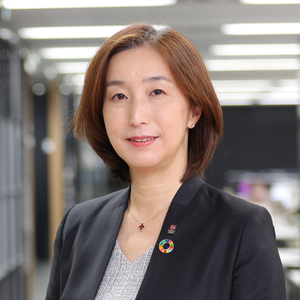
Akiko Murakami
Executive Director of Japan AI Safety InstituteExecutive Director, Japan AI Safety Institute
Akiko Murakami is the executive director of the Japan AI Safety Institute and the Executive Officer and Chief Data Officer of Sompo Japan Insurance Inc. She delivers DX of P&C insurance utilizing digital technologies and AI for the purpose of innovation challenges with digital. Prior to joining Sompo Japan in 2021, she was a researcher of Natural Language Processing, social analysis and text mining at IBM Research for 16 years. After this, she represented Watson development as an architect at IBM for 5 years.
She is involved in "resilient engineering" that utilizes IT for disaster recovery, mitigation, and risk management and founded “IT Disaster Assistance and Response Team” (IT DART) in 2015 and became a board member. She is also a board member of The Association for Natural Language Processing from Apr 2022. She was a part-time lecturer at the Disaster Prevention Research Institute, Kyoto University by March 2024.
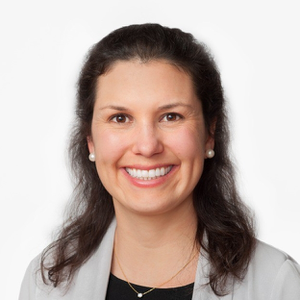
Ashley Zlatinov
Public Policy Product lead at AnthropicAshley Zlatinov leads the Product Public Policy team at Anthropic, supporting product and model development with public policy perspectives and engaging externally to shape regulatory frameworks fit for AGI. Her work focuses on promoting responsible AI development, supporting and shaping regulatory frameworks that prioritize safety, and setting industry standards for AI transparency and accountability.
Prior to Anthropic, Ashley led public policy work at Google for Health AI, AI for Social Good, and Generative AI policy. She is passionate about ensuring technology can positive benefit humanity and has a background in health policy research, nonprofit management, and social innovation consulting for state and local governments. Ashley holds an MPP from the Harvard Kennedy School and a B.A. from Princeton University.
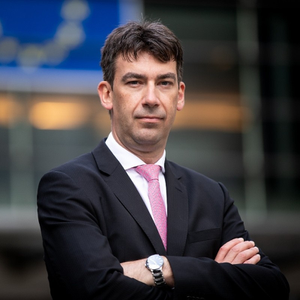
Dragoș Tudorache
Lead negotiatior of the EU AI Act, Renew Europe Group Vice-Chair at European ParliamentDragos Tudorache is a Romanian politician and member of the European Parliament, representing the Renew Europe group. In the European Parliament, Tudorache has been particularly active in areas related to artificial intelligence and digital policy. He serves on several important committees, including the Committee on Civil Liberties, Justice and Home Affairs, the Special Committee on Artificial Intelligence in a Digital Age, and the Committee of Inquiry to investigate the use of Pegasus and equivalent surveillance spyware. Notably, Tudorache served as co-rapporteur on the European Union's Artificial Intelligence Act, playing a key role in shaping this landmark legislation aimed at regulating AI technologies.

Juraj Čorba
Chair at OECD Working Party on Artificial Intelligence Governance (AIGO)Juraj Čorba, Chair of OECD Working Party on Artificial Intelligence Governance („AIGO“) and co-chair of bodies of Global Partnership on AI („GPAI“; together with Abhishek Singh, India). Member of OECD AIGO expert groups on risk and accountability and on AI Futures.
Juraj is responsible for digital regulation and governance at the Ministry of Informatisation, Slovakia (expert position). Juraj was leading negotiations on behalf of Slovakia on the EU´s AI Act at the Council of Ministers of the EU and on the first international Convention on Artificial Intelligence, Human Rights, Democracy and the Rule of Law at the Committee on AI at the Council of Europe. Chair of the Reflection Group of European policy makers on general purpose AI/foundation models, operationally supported by The Future Society. Former agent of Slovakia before the Court of Justice of the EU and former practising private legal counsel specialising in EU economic regulatory affairs. Studied law and political science (Comenius University, Bratislava; Institute of Advanced Legal Studies, University of London).
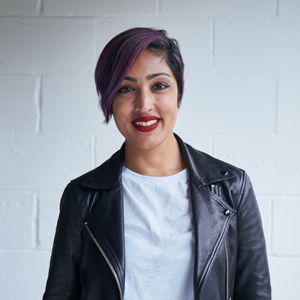
Rumman Chowdhury
CEO of Humane IntelligenceDr. Rumman Chowdhury’s is a pioneer in the field of applied algorithmic ethics, and an active contributor to discourse around responsible technology. She has helped shape policy - as advisor to the UK House of Lords Parliamentary group on AI, in her testimony to the Congress, the FTC, New York City Algorithmic Commission, as well as her engagement with the UN, OECD, Partnership on AI, and other global AI and ethics organizations.
Her current endeavor is the nonprofit Humane Intelligence, which brings hands-on critical tech education to a broad community via red-teaming exercises and bias bounty challenges. She co-organized Hack the Future (www.airedteam.org) - the largest ever Generative AI red teaming collaboration with eight major tech companies sharing LLMs for 4,000 people to hack.
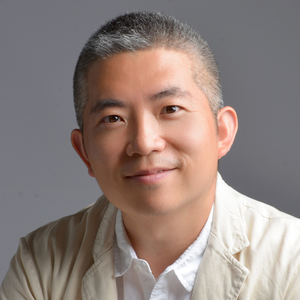
Yi Zeng
Professor of AI at Chinese Academy of Sciences, and Director of Beijing Institute of AI Safety and GovernanceYi Zeng is a Professor from Chinese Academy of Sciences, serving as the Director at the Brain-Inspired Cognitive Intelligence Lab, and the International Research Center for AI Ethics and Governance. He is the founding director of the Beijing Institute of AI Safety and Governance, and Center for Long-term AI. He is a member of the UN High-Level Advisory Body on AI. He is also an expert in the UNESCO Ad Hoc Expert Group on AI Ethics, an expert in the WHO Expert Group on the Ethics/Governance of Artificial Intelligence for Health, and a board member of the National Governance Committee of Next Generation Artificial Intelligence in China. He has briefed at the UN Security Council (9381st Meeting) on AI for International Peace and Security and been listed as one of the TIME100 Most Influential People in Artificial Intelligence (TIME100/AI). His major research interests focus on Brain-inspired Artificial Intelligence, AI Safety, AI Ethics and Governance, AI for international peace and security, and AI for sustainable development.
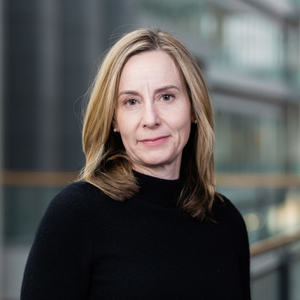
Rebecca Finlay
CEO of Partnership on AIRebecca Finlay is CEO at Partnership on AI, a global nonprofit bringing together a cross-sectoral community of over 100 partners in 17 countries to ensure developments in AI advance positive outcomes for people and society. With an influential career at the intersection of technology and society, Rebecca has held leadership roles in civil society, research organizations and industry.
Prior to PAI, she founded the AI & Society program at global research organization CIFAR, one of the first international, multistakeholder initiatives on the impact of AI in society. Rebecca’s insights have been featured in books and media including The Financial Times, The Guardian, Politico and Nature Machine Intelligence. She speaks at venues such as SXSW, Wall Street Journal, OECD, FTC, and the UK AI Safety Summit.
She is a Fellow of the American Association for the Advancement of Sciences (AAAS) and sits on advisory bodies in Canada, France and the U.S. She lives in Toronto and holds degrees from McGill and the University of Cambridge.
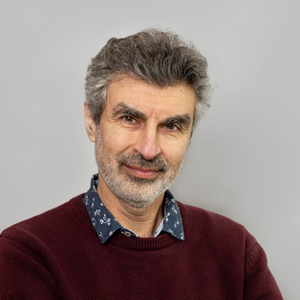
Yoshua Bengio (virtual participation)
Full Professor at Department of Computer Science and Operations Research at Université de MontrealRecognized worldwide as one of the leading experts in artificial intelligence, Yoshua Bengio is most known for his pioneering work in deep learning, earning him the 2018 A.M. Turing Award, “the Nobel Prize of Computing,” with Geoffrey Hinton and Yann LeCun.
He is Full Professor at Université de Montréal, and the Founder and Scientific Director of Mila – Quebec AI Institute. He co-directs the CIFAR Learning in Machines & Brains program as Senior Fellow and acts as Scientific Director of IVADO.
In 2019, he was awarded the prestigious Killam Prize and for several years has been the computer scientist with the greatest impact in terms of citations, as measured by the h-index. He is a Fellow of both the Royal Society of London and Canada, Knight of the Legion of Honor of France, Officer of the Order of Canada, Member of the UN’s Scientific Advisory Board for Independent Advice on Breakthroughs in Science and Technology since 2023 and a Canada CIFAR AI Chair.
Concerned about the social impact of AI, he actively contributed to the Montreal Declaration for the Responsible Development of Artificial Intelligence and currently chairs the International Scientific Report on the Safety of Advanced AI.
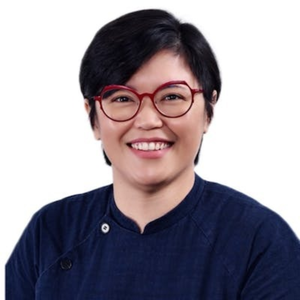
Lee Wan Sie
Director for Data-Driven Tech of Singapore Infocomm Media Development AuthorityLee Wan Sie is Director for Data-Driven Tech at Singapore’s Infocomm Media Development Authority. In the area of AI, her responsibilities include driving Singapore’s approach to AI governance, growing the trustworthy AI ecosystem in Singapore and collaborating with governments around the world to further the development of responsible AI. She is also responsible for encouraging greater use of emergent data technologies, such as privacy enhancing tech, to enable more trusted data sharing in Singapore. Wan Sie has extensive experience in technology use in the public sector – prior to her current role, she developed Singapore’s strategies for Digital Economy and Smart Nation, enabled tech experimentation and innovation as head of IDA Labs, and implemented government digital services that helped Singapore become one of the easiest places in a world to do business. Outside of Singapore, she has worked with governments around the world in their national digitalisation efforts. Wan Sie actively supports Women in Tech in Singapore, to encourage young women to take up a career in technology.
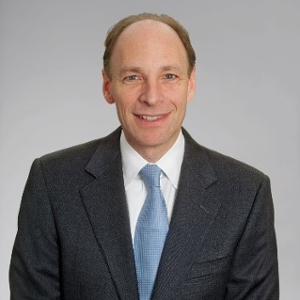
Richard Cantor
International Co-Chair of PECC, Chair of NCAPEC, and Vice Chairman of Moody’s Ratings at Moody's RatingsRichard Cantor is Vice Chair of Moody’s Ratings and a key external spokesperson for the credit rating agency on market developments with investors, regulators, academics and other market participants. From 2008-2022, Mr. Cantor served as Chief Credit Officer and was responsible for the rating agency’s global credit strategy and thematic research, methodologies, models, and tools used in the determination of ratings. Concurrently, from 2009 to 2019, Mr. Cantor also served as Moody’s Corporation’s Chief Risk Officer and led the firm’s global risk management function.
Mr. Cantor also serves as Chair of the U.S. National Committee of the Pacific Economic Cooperation Council (PECC), and International Co-Chair of PECC. He was appointed in 2015 by the U.S. State Department to a three-year term on the Asia Pacific Economic Cooperation (APEC) Business Advisory Council (ABAC).
Prior to joining Moody’s, Mr. Cantor held a variety of positions at the Federal Reserve was an adjunct professor at New York University’s and Columbia University’s business schools. He has also taught Economics at UCLA and The Ohio State University. Mr. Cantor holds BA degrees in English and Economics from Tufts University and a PhD in Economics from Johns Hopkins University.
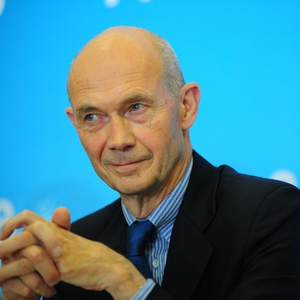
Pascal Lamy
Vice-President of the Paris Peace Forum, Coordinator of the Jacques Delors Think Tanks (Paris, Berlin, Brussels), Former DG of the WTO, Former Trade Commissioner (European Commission) at Paris Peace ForumPascal Lamy (pascallamy.eu) is Vice-President of the Paris Peace Forum and President of the European branch of the Brunswick Group. He coordinates the Jacques Delors Institutes (Paris, Berlin, Brussels).
He is also President or member of various boards with a global, European or French vocation (European Starfish Mission (ocean), Mo Ibrahim Foundation, European Climate Foundation, IFPRI, PECC, CERRE, TMEA, Antarctica 2020, UNOC 2025 preparation, Transparency International, Alpbach Forum, Beijing Forum, World Trade Forum, WEF, Global Risks, Europaeum, Collegium international, Musiciens du Louvre, Institut Mendes-France, Fondation Colbert, etc.).
He is an affiliated professor at the China Europe International Business School CEIBS (Shanghai) and at HEC (Paris).
From 2005 to 2013, Pascal Lamy served two consecutive terms as Director General of the World Trade Organization (WTO). Previously, he was Trade Commissioner (1999-2004), Director General of Crédit Lyonnais (1994-1999), Director of Cabinet of European Commission President Jacques Delors and his G7 Sherpa (1985-1994), Deputy Director of Cabinet of the French Prime Minister (1983-1985) and of the French Minister of Economy and Finance (1981-1983).
Last publication "Strange new world" (Odile Jacob 2020), "Où va le monde?" (Odile Jacob 2018).
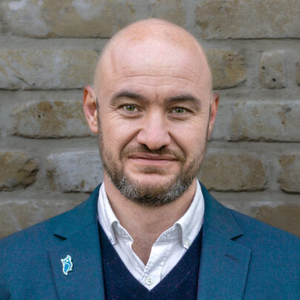
Nico Miailhe
Board Member FPTPEC and Convener of the Seminar, Co-founder & CEO of PRISM Eval, Founder & Chairman of the Board (non executive), The Future Society (TFS)Nicolas (Nico) Miailhe is the co-founder and CEO of PRISM Eval, a start-up based in Paris that specializes in the evaluation, interpretability, and alignment of cutting-edge AI models. PRISM Eval is leading the new research domain of GenAI Cognitive Science.
Until December 2023, Nico was Chief Executive Officer of The Future Society (TFS), which he originally co-founded in 2014 at the Harvard Kennedy School of Government. Nico is acknowledged as a pioneer in the governance of AI and emerging technologies, a field he has been actively shaping since 2011. His contributions over the past decade have been instrumental in establishing foundational governance frameworks and regulatory mechanisms for AI in the European Union, and the United States, and at a global scale. Since 2019, Nico has been a driving force behind The Future Society’s Athens Roundtable, the leading international multi-stakeholder forum on AI and the Rule of Law. As a strategic thought leader, Nico has advised governments, international organizations, philanthropies, and multinational corporations globally. He serves as an appointed expert to the Global Partnership on AI (GPAI), where he co-chairs the Committee on Climate Action & Biodiversity Preservation, and is an invited expert to the OECD’s AI Group of experts (ONE AI) and UNESCO’s High Level Expert Group on AI Ethics
Nico has held teaching positions in AI Governance at the Paris School of International Affairs (Sciences Po) and the IE School of Global & Public Affairs in Madrid, and is a Future World Fellow at the Center for the Governance of Change at IE Business School. An Arthur Sachs Scholar, he holds a Master in Public Administration from Harvard Kennedy School, a Master in Defense, Geostrategy & Industrial Dynamics from Panthéon-Assas University, and a Bachelor of Arts in European Affairs and International Relations from Sciences Po Strasbourg.
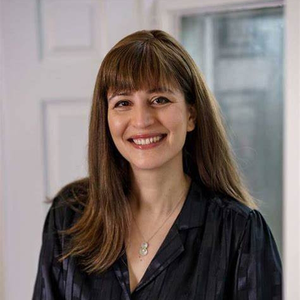
Atoosa Kasirzadeh
Assistant Professor at Carnegie Mellon University & visiting research scientist at GoogleAtoosa is a philosopher of AI and science, an applied mathematician, and a systems engineer. She is a visiting research scientist at Google and a 2024 Schmidt Sciences early career fellow. In December 2024, Atoosa will start as an assistant professor (affilitated with both philosophy and software and societal systems departments) at Carnegie Mellon University. Prior to this, she was a chancellor’s fellow and the director of research at the Centre for Technomoral Futures at the University of Edinburgh, a research lead at the Alan Turing Institute, a DCMS/UKRI senior policy fellow, a governance of AI fellow in Oxford, and a student researcher at Google DeepMind. She has a Ph.D. in philosophy of science and technology from the University of Toronto and a Ph.D. in applied mathematics (Operations Research) from the Ecole Polytechnique of Montreal. Her research uses quantitative, qualitative, and philosophical methods to explore a range of questions about the societal impacts, governance, and future of AI and computational sciences. Atoosa’s work has been covered in the popular press including The Wall Street Journal, The Atlantic, and TechCrunch.
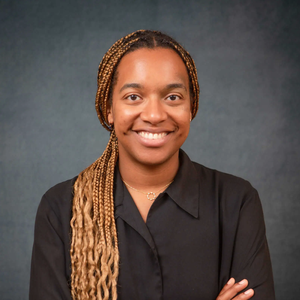
Imane Bello (Ima)
AI Action Summit Lead at Future of Life InstituteImane Bello is FLI’s AI Action Summit Lead. Previously, Ima worked as a legal and policy counsel on AI. In this capacity, she advised ML companies, NGOs and other stakeholders on compliance in artificial intelligence (governance, risk management, ethics and human rights).
Ima holds the Paris Bar Exam Certificate, a master’s degree in Global Governance Studies from Sciences Po Paris and bachelor’s degrees in social sciences, law and political sciences from Sciences Po Paris, Nancy II and the Free University of Berlin. She speaks French, English, German and a decent amount of Spanish.
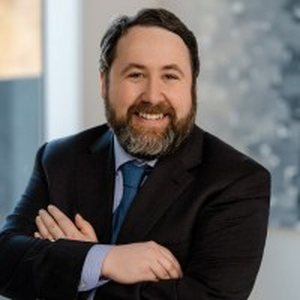
William Bartholomew
Director of Public Policy with the Office of Responsible AI at MicrosoftWilliam Bartholomew (he/him) is a Director of Public Policy in Microsoft's Office of Responsible AI. His public policy advocacy benefits from over a decade of experience in designing, implementing, and operating software supply chains used by tens of thousands of developers. He brings his relentless focus on reducing friction to standards development, open source, and public- and private-sector working groups globally. When not working, he can be found tinkering with hardware and software, making espresso, and spending time with his family in the United States' Pacific Northwest.
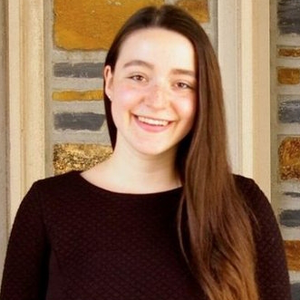
Sarah Cogan
Software Engineer, Frontier Safety at Google DeepMindSarah Cogan is a Software Engineer at Google DeepMind on the Frontier Safety team, where she builds dangerous capability evaluations. Her work spans multiple domains, including persuasion and cyber-security. She is an author on "Evaluating Frontier Models for Dangerous Capabilities," which details her team's evaluations suite and the results of running these evaluations on Gemini 1.0 models. Prior to joining Google DeepMind, Sarah worked on LLM applications in Google Cloud.
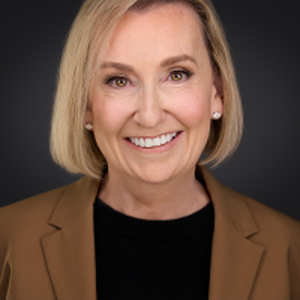
Jan De Silva
Co-Chair, Canada-ASEAN Business Council, former President & CEO, Toronto Region Board of Trade, Member at ABAC CanadaJan De Silva is Canada Co-Chair of the Canada-ASEAN Business Council (CABC). She previously served as Special Advisor to the Toronto Region Board of Trade, one of the largest and most influential business organizations in North America, where she was President and CEO from January 2015 to September 2023. In this role, she spearheaded efforts to make Toronto one of the most competitive and sought-after business regions in the world.
She has more than 14 years of international CEO experience building ambitious, high-growth organizations. Anchored in her leadership is her belief in the power of economic development to lift communities. Prior to joining the Board, she served as CEO of Sun Life Financial’s Hong Kong and Mainland China businesses. She co-founded, was CEO and later sold Retail China Limited. She also served as Dean of Ivey Asia for Ivey Business School of Western University.
Highly respected for her business advocacy and government engagement, Ms. De Silva has been Chair of the Canadian Chamber of Commerce in Hong Kong, Chair of the Canada China Business Council in Beijing and served on the Board of the Asian Corporate Governance Association. She also sits on the board of Intact Financial Corporation, listed on the Toronto Stock Exchange and Building Ontario Fund (formerly Ontario Infrastructure Bank).
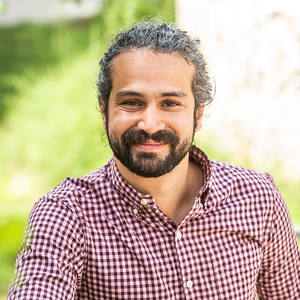
Ian Eisenberg
Head of AI Governance Research at Credo AIIan Eisenberg is Head of AI Governance Research at Credo AI, where he advances best practices in AI governance and develops AI-based governance tools. He is also the founder of the Ai Salon, an organization supporting conversations on the meaning and impact of AI. His interest in AI started as a cognitive neuroscientist at Stanford, which developed into a focus on the sociotechnical challenges of AI technologies and reducing AI risk. Ian has been a researcher at Stanford, the NIH, Columbia and Brown University. He received his PhD from Stanford University, and BS from Brown University.
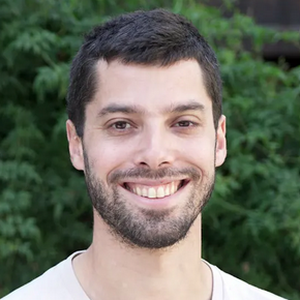
Nick Fitz
Founder & GP at Juniper VenturesNick Fitz is the Founder & CEO of Momentum and Founder & GP at Juniper Ventures. Previously, he served as a Senior Behavioral Scientist at Dan Ariely's Center for Advanced Hindsight and Startup Lab at Duke University. Nick has held fellowships at the University of British Columbia, University of Oxford, and at policy institutes in Washington, D.C.
His work has been featured in The New York Times, The Washington Post, Radiolab, and The Atlantic. Nick's research is published in journals including Nature, Computers in Human Behavior, and Social Science & Medicine. As investor, he has invested in companies like Anthropic, OpenAI, Cohere, Hugging Face, Perplexity, Stripe, and Canva.
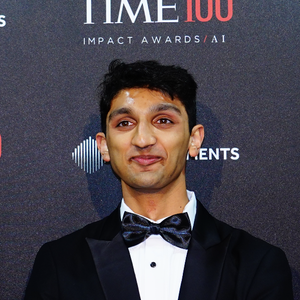
Sunny Gandhi
VP, Political Affairs at Encode Justice- Panel: Global Governance of AI: Challenges, Opportunities, and Societal Impacts
- Address from Encode Justice
Sunny is the Vice President of Political Affairs at Encode Justice. In his role, he is known for his collaboration with stakeholders ranging from the White House to influential private companies and activist organizations. He is a senior undergrad at Indiana University majoring in computer science where he has published research papers on cloud-based AI services, the 2022 Midterm Elections, and the application of Large Language Models for legal reasoning. Sunny is also an affiliated researcher at the Observatory on Social Media and interns with the law firm Mayer Brown. He has previously interned in technical AI roles at Deloitte, NASA, as well as worked with the US State Department.
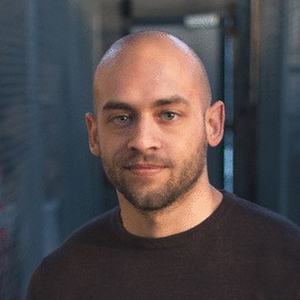
Lucas Hansen
Co-Founder of CivAILucas Hansen is Co-Founder of CivAI, a 501(c)(3) non-profit based in the Bay Area. CivAI’s mission is to give people a deep understanding of AI and its implications through concrete demonstrations of the technology. Lucas is also Co-Founder and former CTO of Qualia, a real estate software company that serves millions of homeowners each year.
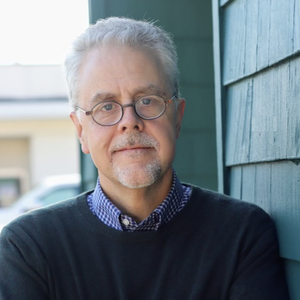
John Havens
Founding Executive director of the IEEE Global Initiative on Ethics of Autonomous and Intelligent Systems and author, Heartificial Intelligence: Embracing Our Humanity to Maximize Machines at IEEEJohn C. Havens is the Global Director for The IEEE Planet Positive 2030 Program that produced the Compendium document, Strong Sustainability by Design: Prioritizing Ecosystem and Human Flourishing with Technology-Based Solutions that inspired the creation of the IEEE 7800 Standards Series focused on sustainability.
He is also the Founding Executive Director of The IEEE Global Initiative on Ethics of Autonomous and Intelligent Systems which was responsible for creating Ethically Aligned Design: A Vision for Prioritizing Human Well-being with Autonomous and Intelligent Systems that was utilized by the United Nations, the OECD, IBM and dozens of organizations to create their AI principles, policies, and technology. John helped create the IEEE 7000 Standards Series, the largest suite of international standards focused on Artificial Intelligence and ethical / societal issues to date.
Previously, John was an EVP of Social Media at Porter Novelli and was a professional actor for over 15 years. John has written for Mashable and The Guardian and is author of the books, Heartificial Intelligence: Embracing Our Humanity To Maximize Machines and Hacking Happiness: Why Your Personal Data Counts and How Tracking it Can Change the World.
What advice or information pertaining to AI governance are you happy to offer other participants?
That we must prioritize ecological and human flourishing at the outset of, and throughout the entire life cycle for, any AI technology using accountable metrics (eg, SDGs, ESGs) as the basis for this flourishing.
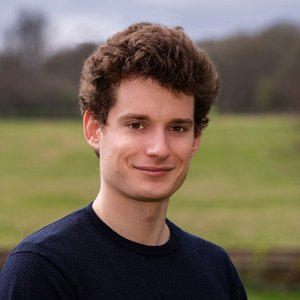
Marius Hobbhahn
CEO of Apollo ResearchMarius is CEO of Apollo Research, a new technical AI safety organization. Their agenda revolves around deception, interpretability, model evaluations and auditing. Prior to that, he was a part-time research fellow with EpochAI in parallel to his ML PhD. EpochAI is a research institute investigating key trends and questions that will shape the trajectory and governance of AI.
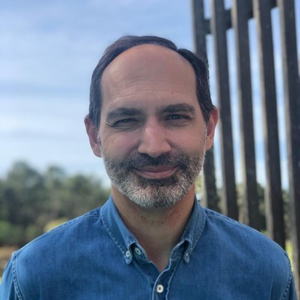
Philippe Huberdeau
Secretary General AI Action Summit / Secretary General Scale Up Europe at AI Action Summit and Scale Up EuropeSecretary General of Scale-Up Europe, an initiative launched by President Emmanuel Macron to accelerate the growth of innovation and to consolidate the technological sovereignty of Europe : « The headline goal is to build in Europe 10 global tech champions worth more than euro 100bn by 2030 ». Passionate about international business development, with an extensive track record in European affairs. Strong believer in the huge untapped potential in private-public co-operation to boost transnational trade, investment and innovation. Previously, I organized the G7 Summit in Biarritz in 2019, and also worked at the French foreign ministry as well as the European Commission.

De Kai
Professor of Computer Science and Engineering at HKUST and a Distinguished Research Scholar at Berkeley’s International Computer Science Institute at Hong Kong University of Science and Technology, UC Berkeley, The Future SocietyDe Kai invented and built the world’s first global-scale online language translator that spawned Google Translate, Yahoo Translate, and Microsoft Bing Translator. For his pioneering contributions in AI, natural language processing, and machine learning, De Kai was honored by the Association for Computational Linguistics as one of only seventeen Founding Fellows and by Debrett’s as one of the 100 most influential figures of Hong Kong.
He speaks to philosophical questions about the fears and possibilities of new technology and how we can be empowered to shape our future. His work to bridge cultures spans artificial intelligence, cognition, language, music, creativity, ethics, society, and policy. Talks and media this year have included New York Times, cover story of Human magazine, UBS keynote with Geoffrey Hinton, Dun & Bradstreet keynote, TEDx, global news channels like NDTV and i24 News, and dozens more.
De Kai is Professor of Computer Science and Engineering at HKUST and a Distinguished Research Scholar at Berkeley’s International Computer Science Institute. He is an independent director of AI ethics think tank The Future Society, and was one of eight inaugural members of Google’s AI ethics council.
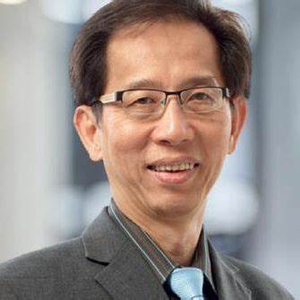
Dr. Tan Khee Giap
Chairman at Singapore National Committee for Pacific Economic Cooperation (SINCPEC)Dr. Tan Khee Giap Chairman of the Singapore National Committee for Pacific Economic Cooperation. Upon graduating with a PhD from University of East Anglia, England, in 1987 under the Overseas Research Scheme awarded by the Committee of Vice-Chancellors and Principals of the Universities of the United Kingdom, he joined the banking sector as a treasury manager and served as secretary to the Assets and Liabilities Committee for three years, there after he taught at the Department of Economics and Statistics, National University of Singapore, 1990-1993.
Dr Tan joined Nanyang Technological University in 1993 and was Associate Dean, Graduate Studies Office, 2007-2009. He was Co-Director of the Asia Competitiveness Institute (ACI) at LKYSPP, NUS from 2011 to 2020. Dr Tan has consulted extensively with the various government ministries, statutory boards and government linked companies of Singapore government including Ministry of Finance, Ministry of Trade & Industry, Ministry of Manpower, Housing & Development Board, Civil Aviation Authority of Singapore, Singapore Tourism Board, Trade Development Board, Maritime Port Authority, Ministry of Information, Culture & Arts, Economic Development Board, Ministry of National Development, Media Development Authority, Ministry of Environment and Water Resources, Singapore Design Council, Ministry of Community Development, Youth & Sports, Singapore Press Holdings, Yayasan Mendaki, StarHub, CapitaLand and Great Eastern Life. He has also served as a consultant to international agencies such as the Asian Development Bank, Asian Development Bank Institute, United Nations Industrial Development Group, World Bank Group, World Gold Council, ASEAN Secretariat, Central Policy Unit of Hong Kong, Kerzner International, Las Vegas Sands and Marina Bay Sands.
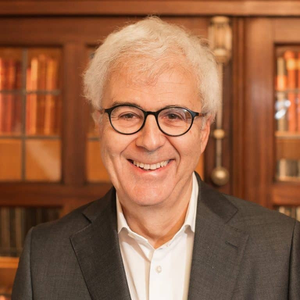
Bruno Liebhaberg
Executive Chairman at Centre on Regulation in Europe (CERRE)Bruno Liebhaberg is Executive Chairman of the think tank Centre on Regulation in Europe (CERRE) which he founded in 2010.
From 2018 to 2021, he was also the first Chairman of the European Union Observatory on the Online Platform Economy. He is also an Honorary Professor at the Université Libre de Bruxelles’ Solvay Brussels School of Economics and Management (SBS-EM ULB) where he taught from 1979 to 2018. Earlier in his career, he advised former European Commission President Jacques Delors on industry and R&D matters related to the completion of the EU Single Market.
He holds a Master’s in management sciences from SBS-EM ULB and a Ph.D. in Industrial Relations from the London School of Economics and Political Science.

Sarah K. Luger, PhD
Co-chair Data Sets Working Group at MLCommonsI have focused recently on applying my AI Safety and Toxicity Identification expertise on driving data and LLM-system benchmarks and guardrails.
𝐆𝐞𝐧𝐞𝐫𝐚𝐭𝐢𝐯𝐞 𝐀𝐈 𝐈𝐧𝐧𝐨𝐯𝐚𝐭𝐢𝐨𝐧 𝐒𝐭𝐫𝐚𝐭𝐞𝐠𝐢𝐬𝐭 𝐚𝐧𝐝 𝐒𝐭𝐚𝐫𝐭𝐮𝐩 𝐀𝐝𝐯𝐢𝐬𝐨𝐫:
Published expert in embedding-based AI systems in toxicity identification in social media posts and machine translation for low-resource languages. Invited speaker on Responsible AI/AI Safety and AI challenges in the Global South, generative AI startup advisor, and advocate for holistic technology approaches to building AI tools that support humans. I spend my free time working towards the rigorous evaluation of AI systems through socializing benchmarks and publicly available data set curation.
𝐀𝐈 𝐑𝐞𝐬𝐞𝐚𝐫𝐜𝐡 𝐃𝐢𝐫𝐞𝐜𝐭𝐨𝐫:
Extensive experience in managing teams of engineers, product managers, data scientists, and local and remote annotators, focusing on building cross-functional teams to resolve intricate client data problems. Experience in venture capital, strategy, and client management has equipped me to articulate the crucial balance between innovative academic and industrial problem-solving.
Data management and human decision-making expert emphasizing building, refining, and analyzing big data sets. Proficient interpreter of client needs, skilled in translating needs into high-quality products.
Build, refine, and analyze big data sets and serve as a curator of data for machine learning algorithms.
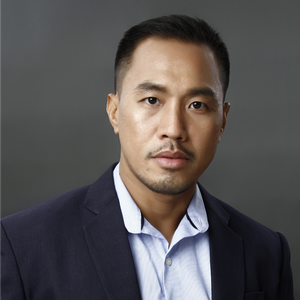
Mark Manantan
Director of Cybersecurity and Critical Technologies at Pacific Forum in Honolulu, HawaiiMark Bryan Manantan is the Director of Cybersecurity and Critical Technologies at the Pacific Forum in Honolulu, Hawaii. At the Forum, he currently leads the US Technology and Security partnerships with Japan, Australia, Taiwan and South Korea as well as the Digital ASEAN Initiative that focuses on cyber-capacity building, artificial intelligence, foreign interference, and space diplomacy. He is also the host of Pacific Forum’s official podcast, the Indo-Pacific Current.
Mr. Manantan is a non-resident fellow at the Center for Southeast Asian Studies, National Chengchi University, Taiwan, and formerly a research consultant at the Asia Society Policy Institute, Washington, DC. He has held visiting fellowships at the Japan Foundation, the Center for Rule-Making Strategies at Tama University in Tokyo, Japan, and the East-West Center, Washington, DC. Prior to that, he was a media, public relations, and advertising executive for Procter & Gamble, Wells Fargo, Aboitiz Equity Ventures, and UNICEF.
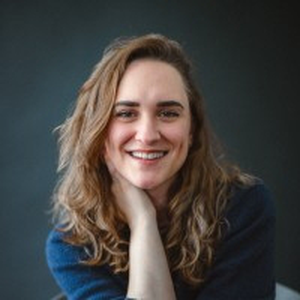
Claudia May Del Pozo
Founder & Director of Eon InstituteClaudia Del Pozo is the Founder and Director of Eon Institute, a women-led Mexican think-tank that seeks to future-proof society in the face of technological change. It is an independent spin-off of C Minds, an organization she helped create in 2017. Her work has led her to be selected to be part of the Senate's National AI Alliance (ANIA) Experts Council and to join the UK's Emerging Technologies Advisory Council in Mexico, among others. In 2024, she was selected by WIRED to be featured as one of the top women protecting Latin America from AI risks and was invited to be a Global Anti-Bias Ambassador for Women in Technology and Theodora AI, in addition to being recognized in 2022 as a key component of the Mexican ecosystem by the Women in AI Awards. In the past, she coordinated the first public policy prototype (sandbox type) for more responsible AI systems in Mexico and the National AI Agenda of the IA2030Mx Coalition that she co-founded. She is a graduate from Warwick Business School in the UK and started her career at IBM Germany
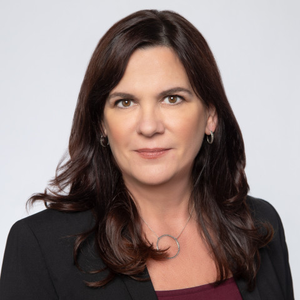
Corynne McSherry
Intellectual Property Director of Electronic Frontier FoundationCorynne McSherry is the Legal Director at EFF, specializing in intellectual property, open access, and free speech issues. Her favorite cases involve defending online fair use, political expression, and the public domain. As a litigator, she has represented the Internet Archive, Professor Lawrence Lessig, Public.Resource.Org, the Yes Men, and a dancing baby, among others. She was named one of California's Top Entertainment Lawyers and AmLaw's "Litigator of the Week" for her work on Lenz v. Universal. Her policy work focuses on copyright, generative AI, and best practices for online expression. She has testified before Congress about the Digital Millennium Copyright Act and Section 230. Corynne comments regularly on digital rights issues and has been quoted in a variety of outlets, including NPR, CBS News, Fox News, the New York Times, Billboard, the Wall Street Journal, and Rolling Stone. Prior to joining EFF, Corynne was a litigator at the law firm of Bingham McCutchen, LLP. Corynne has a B.A. from the University of California at Santa Cruz, a Ph.D from the University of California at San Diego, and a J.D. from Stanford Law School. While in law school, Corynne published Who Owns Academic Work?: Battling for Control of Intellectual Property (Harvard University Press, 2001).
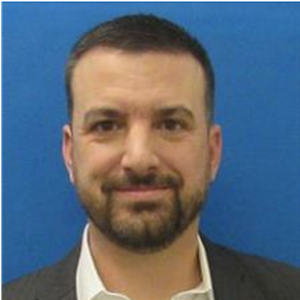
Ethan Michaud
Managing Director of Tech Strategy & Innovation at Moody's RatingsAs part of the Moody's Ratings Tech leadership team, Ethan Michaud is Managing Director of Tech Strategy & Innovation. This role’s primary focus is to lead the technical direction for Moody's Ratings, ensuring technology is applied in a safe, secure consumable way. Putting into practice technology strategies which look to enable both technologists and business partners here in Moody's Ratings.
After serving in the military for a number of years, Mr. Michaud began his corporate career at Monster.com. These early experiences at Monster.com in how to think about technology differently still resonate in his thinking, even though his career has taken a very different direction into financial services. Since Monster, Mr. Michaud has enjoyed and learned from his experiences in leadership roles across a variety of financial institutions, such as AIG, TIAA, and Merrill Lynch. He has over 15+ years of experience in technology with a diverse background in military, corporate, and entrepreneurial settings providing the real world understanding of the important relationship between people and technology. His work in real time analytics and visualization has earned him five US Patents.
Growing up just outside of Boston, Ethan and his family now enjoy the warmer climate of Charlotte North Carolina. Some of the family’s favorite pastimes are to enjoy as much of the outdoors as they can. That being said, most of his time outside of work is spent having fun with the kids in all their activities. How we learn and continue to grow is one aspect of life Ethan never stops exploring. Currently pursing studies towards his MBA from Boston University.
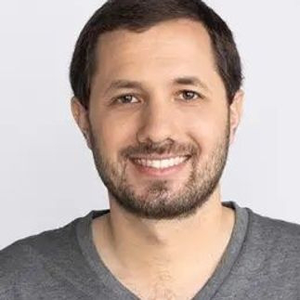
Sella Nevo
Director of the Meselson Center at RAND CorporationSella Nevo is a senior information scientist at RAND, and director of the Meselson Center, dedicated to reducing risks from biological threats and emerging technologies. The center combines in-depth policy research with state-of-the-art technical research to provide policymakers with the information and expertise needed to prevent, prepare for, and mitigate large-scale catastrophes, such as pandemics. Nevo also acts as a Venture Partner at the climate-focused VC firm Firstime, and advisory board member of ALLFED - the Alliance to Feed the Earth. He focuses on high-leverage interventions to prevent or mitigate pandemics and other large-scale biological disasters, the intersection between technological and policy solutions, and other key issues in emerging technologies including artificial intelligence and information security.
Nevo joined RAND from Google, where he founded and managed the Karmel group - a team of 70 researchers and engineers dedicated to using machine learning to tackle humanitarian, global development, and climate-related challenges. His team developed operational flood forecasting systems now covering more than 450 million people across eighty countries, tripled the number of buildings mapped across the African continent for use by the UN, World Bank, and others, and led to major reductions in greenhouse gases from road transportation. He previously taught Information Security and Applied Ethics at Tel Aviv university.
Nevo was featured in Fortune's Change The World list, TheMarker's 40 Under 40, won the World Debating Championship, was a repeated invited speaker at the UN, the World Bank, Harvard, Oxford, Yale, NeurIPS, ICML, and more.
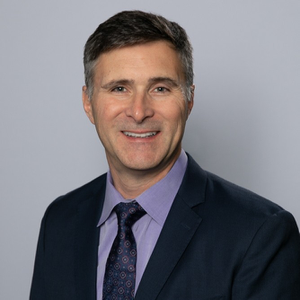
Michael Nunes
VP, Payments Policy at VisaI help companies grow by advancing public policy and regulatory initiatives that align with business priorities. I have significant experience leading teams, executing communications strategies, implementing government relations programs, developing new business opportunities, and collaborating with internal teams to develop, launch, and scale policy initiatives.
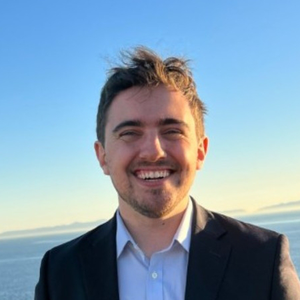
Chris Painter
Policy Director of METRChris Painter leads policy initiatives at METR. His background spans finance, robotics, and machine learning, with applications in medicine and biology. Chris previously served as a Technology and National Security Fellow at the DoD's Joint Artificial Intelligence Center and led operations at Alvea, a biotech startup. At METR, he develops policy recommendations and fosters collaboration to ensure responsible development of frontier AI technologies.
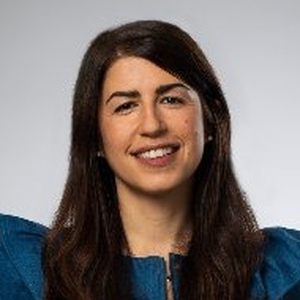
Sarah Pinto
Partner at Emerson CollectiveSarah leads growth-stage venture investing at Emerson Collective. She has led investments in Lyra Health, Devoted Health, Unite Us, BetterUp, Chime, Divvy Homes, Stripe, Pilot, Deel, Mos, Brightwheel, and Guild Education, among others. Before joining Emerson Collective, Sarah spent 10 years investing at Spectrum Equity, Great Hill Partners, and Bridgepoint. She started her career as an investment banker with Goldman Sachs and is a graduate of Harvard Kennedy School and HEC Paris.
Sarah grew up in Paris and lives in San Francisco with her husband and two children. She is an active member of All Raise and passionate about inclusion in technology.
Emerson Collective is an organization designed to develop opportunities and solutions in education, environment, immigration, gun violence and health equity through philanthropy, creativity and investments. Established and led by Laurene Powell Jobs in 2011, Emerson Collective is working to create new possibilities for individuals, families, and communities.

Robert Reich
Senior Advisor, U.S. Artificial Intelligence Safety Institute at NIST, U.S. Department of CommerceRob Reich is senior advisor for the U.S. Artificial Intelligence Safety Institute. In this role, he will advise the AI Safety Institute and lead engagement with civil society organizations to help ensure that AISI efforts reflect the feedback and input of a diversity of stakeholders.
Reich will be on public service leave from Stanford University, where he is a professor of political science, associate director of the Institute for Human-Centered AI, co-director of the Center on Philanthropy and Civil Society, and past director of the Center for Ethics in Society. He has authored a number of books that address technology, ethics and policy.
He holds a Ph.D. in the philosophy of education from Stanford University and a B.A. in philosophy from Yale University.
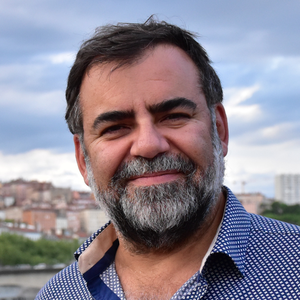
Ricardo Baeza-Yates
Director of Research, Institute for Experiential AI at Northeastern UniversityRicardo Baeza-Yates is Director of Research at the Institute for Experiential AI of Northeastern University. He is also a part-time Professor at Universitat Pompeu Fabra in Barcelona and Universidad de Chile in Santiago. Before he was the CTO of NTENT, a semantic search technology company based in California and prior to these roles, he was VP of Research at Yahoo Labs, based in Barcelona, Spain, and later in Sunnyvale, California, from 2006 to 2016. He is co-author of the best-seller Modern Information Retrieval textbook published by Addison-Wesley in 1999 and 2011 (2nd ed), which won the ASIST 2012 Book of the Year award. From 2002 to 2004 he was elected to the Board of Governors of the IEEE Computer Society and between 2012 and 2016 was elected to the ACM Council. Since 2010 he has been a founding member of the Chilean Academy of Engineering. In 2009 he was named ACM Fellow and in 2011 IEEE Fellow, among other awards and distinctions. He obtained a Ph.D. in CS from the University of Waterloo, Canada, and his areas of expertise are web search and data mining, information retrieval, bias and ethics on AI, data science and algorithms in general.
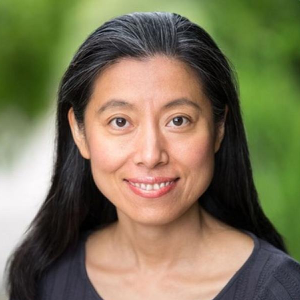
Dawn Song
Professor in the Department of Electrical Engineering and Computer Science at UC Berkeley at UC BerkeleyDawn Song is a Professor in the Department of Electrical Engineering and Computer Science at UC Berkeley. Her research interest lies in deep learning and security. She has studied diverse security and privacy issues in computer systems and networks, including areas ranging from software security, networking security, database security, distributed systems security, applied cryptography, to the intersection of machine learning and security.
She is the recipient of various awards including the MacArthur Fellowship, the Guggenheim Fellowship, the NSF CAREER Award, the Alfred P. Sloan Research Fellowship, the MIT Technology Review TR-35 Award, the George Tallman Ladd Research Award, the Okawa Foundation Research Award, the Li Ka Shing Foundation Women in Science Distinguished Lecture Series Award, the Faculty Research Award from IBM, Google and other major tech companies, and Best Paper Awards from top conferences.
She obtained her Ph.D. degree from UC Berkeley. Prior to joining UC Berkeley as a faculty, she was an Assistant Professor at Carnegie Mellon University from 2002 to 2007.
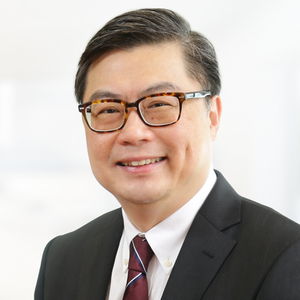
Dr. Kar Yan Tam
Chairman HKCPEC; Dean, School of Business and Management; Chair Professor, Department of Information Systems, Business Statistics and Operations Management at Hong Kong University of Science & TechnologyProfessor Kar Yan TAM is Dean of the Business School and Chair Professor of Information Systems, Business Statistics and Operations Management at The Hong Kong University of Science and Technology (HKUST). He is currently a board member of the European Foundation for Management Development (EFMD) and was the Past President of the Association of Asia Pacific Business Schools (AAPBS). Professor Tam also plays an active role in public services. Currently, he serves on the Exchange Fund Advisory Committee of the Hong Kong Monetary Authority and is the Chairman of the Hong Kong Committee for Pacific Economic Cooperation of the Hong Kong Government.

Brian Tse
Founder and CEO of Concordia AIBrian Tse is the Founder and CEO of Concordia AI, the first social enterprise focused on AI safety and governance in China. It focuses on supporting the technical AI safety ecosystem, advising domestic AI governance practices, and promoting international understanding and dialogue on AI safety. He serves on the AI Safety Governance Committee in China’s AI Industry Alliance. Internationally, Brian is a member of the consultative network for UN Secretary-General’s High-Level Advisory Body on AI, participated in the UK AI Safety Summit and AI Seoul Summit, and is a Policy Affiliate at the Centre for the Governance of AI. Previously, Brian was Senior Advisor to the Partnership on AI. He co-edited the book "Global Perspective on AI Governance" published by Tongji University Press
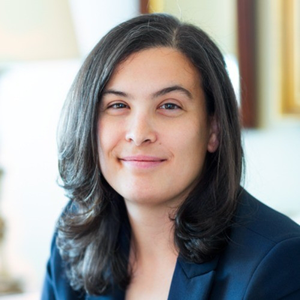
Rebecca Weiss
Executive Director of MLCommonsRebecca Weiss is the Executive Director of MLCommons. She is a distinguished data scientist and computational social scientist known for innovative large-scale data analysis of online behavior. Previously, she was the head of Research and Innovation at Mozilla, where she created the privacy-preserving Rally user data donation platform, and also founded and led the Firefox Data Science organization. Weiss serves on the board of the Pew Research Center, has been a fellow at Princeton, Harvard, and Columbia, and an advisor to U.S. Congress on AI policy and strategy. She holds a PhD from Stanford University, an MS from the Massachusetts Institute of Technology, and a BA with class 1 honours from the University of British Columbia.
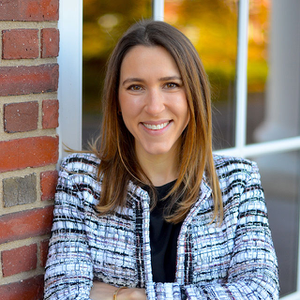
Molly Welch
Investor at Radical VenturesMolly Welch is an Investor at Radical Ventures, based in the Bay Area. Molly works across the firm’s investments in AI-native startups, including Laredo Labs, Muon Space, and several not yet public.
Prior to Radical, Molly worked at Google Research in public policy and marketing roles. Previously, she has worked on AI policy at Lyft and as a venture investor at deeptech VC Playground Global.
Molly holds a B.A. with distinction from Stanford University, a Masters in Public Policy from the Harvard Kennedy School, and an MBA with distinction from Harvard Business School. At Harvard, she was a George Leadership Fellow, David M. Rubenstein Fellow, and Research Assistant for the Technology and Public Purpose Program (TAPP), led by former Secretary of Defense Ash Carter. At Stanford, she was awarded the Stanford Award of Excellence, President’s Award for Academic Excellence, and was advised by former Secretary of State Condoleezza Rice.
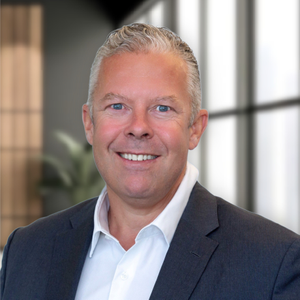
Frederic Werner
Head of Strategic Engagement at the International Telecommunication Union (ITU) at International Telecommunication UnionFrederic Werner, based in Geneva, Switzerland, currently serves as the Head of Strategic Engagement at ITU, the United Nations' specialized agency for ICTs, and also holds the position of Chief of Strategy and Operations for AI for Good. Fred leads TSB's strategic engagement initiatives, covering digital marketing and communications, membership and business development, business intelligence and analytics, fundraising and resource mobilization, community building and event design, as well as piloting AI-powered tools to enhance business processes and operations.
As one of the creators of the landmark AI for Good Global Summit, his mission centres on connecting AI innovators with problem owners to collectively advance the United Nations Sustainable Development Goals. Motivated by the potential of communication technologies and AI, he believes in harnessing their power to drive business, improve society, and tackle global issues.
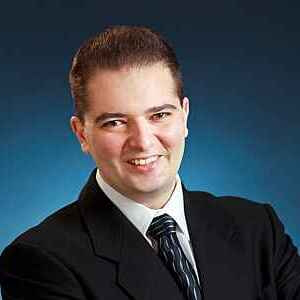
Wael William Diab
Chair of the joint ISO/IEC committee on AI at ISO/IECWael William Diab is a business and technology strategist with more than two and half decades of executive experience at Fortune 500 companies in Silicon Valley. He is a prolific inventor with more than 900 patents to his name in the ICT field and an industry recognized expert on digital transformation. Skilled in leadership for breakout technology, Diab has architected strategy, driven industry-wide initiatives, cultivated partnerships, identified M&A opportunities and orchestrated company roadmaps for transformational fields including AI, IoT and sustainability.
Wael has BS and MS degrees in EE and BA in Economics from Stanford, and an MBA with honors from Wharton. He is a published author, having authored the book Ethernet in the First Mile: Access for Everyone. In 2011, Wael was recognized by the David Packard Medal of Achievement and Innovator Award for his leadership in Green Technology. In 2023, Wael received the ANSI Meritorious Service Award.
Wael has been active in standardization and related activities for over two decades. He chairs ISO/IEC JTC 1/SC 42, the international standardization committee on artificial Intelligence (AI) looking at the holistic AI, analytics and Big Data ecosystems. Wael led the development of and chairs the ISO/IEC AI workshop series. In September 2023, ISO recognized the ISO/IEC JTC 1/SC 42 (AI) committee and Wael, for his leadership, through the 2023 Lawrence D. Eicher Leadership Award. This prestigious award recognizes the significant contribution and superior performance of an ISO committee. Wael has led global AI forums such as at the 22nd Global Standards Collaboration (GSC-22).
At the Industrial Internet Consortium (IIC), Wael was the Secretary of the Steering Committee and chaired several groups including the Liaison Working Group, Technology Working Group, and Industrial AI Task Group. He is a lead author of the Industrial IoT AI Framework (IIAIF), Industrial Analytics: The Engine Driving the IIoT Revolution whitepaper and the Industrial IoT Analytics Framework (IIAF). He is a recipient of the IIC Individual Contributor Award and was the inaugural chair of the IoTSWC AI forum.
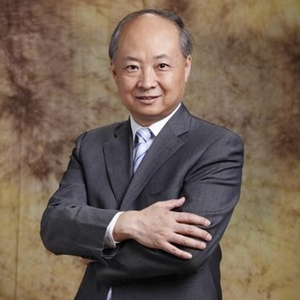
Yongxin Zhan
Chair at CNCPECAmbassador Zhan Yongxin, is PECC Co-Chair and Chair of the China PECC Committee
Ambassador Zhan had worked at the China Institute of the International Studies and then served as a professional diplomat for more than 30 years including in the Department of the International Organizations and in the Ministry of Foreign Affairs, heading the Policy Planning Department . He had diplomatic postings throughout the world including Canada, Hong Kong (China), and Israel Ambassador Zhan had been in charge of APEC affairs while working in the Department of International Organizations and the Conferences from 1994 to 1996.
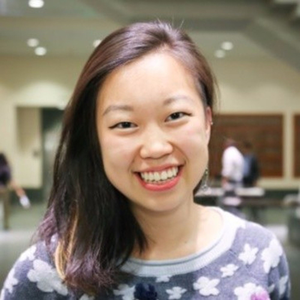
Diyi (Judy) Zhu
Senior Program Manager at MozillaDiyi (Judy) Zhu is a community builder and Senior Program Manager at Mozilla, where she focuses on creating impactful community experiences, particularly within AI and Responsible Tech. Based in San Francisco, Diyi holds a Bachelor's degree in Mechanical Engineering with a minor in Economics and Finance from Duke University. She has extensive experience in community management, program development, and user research.